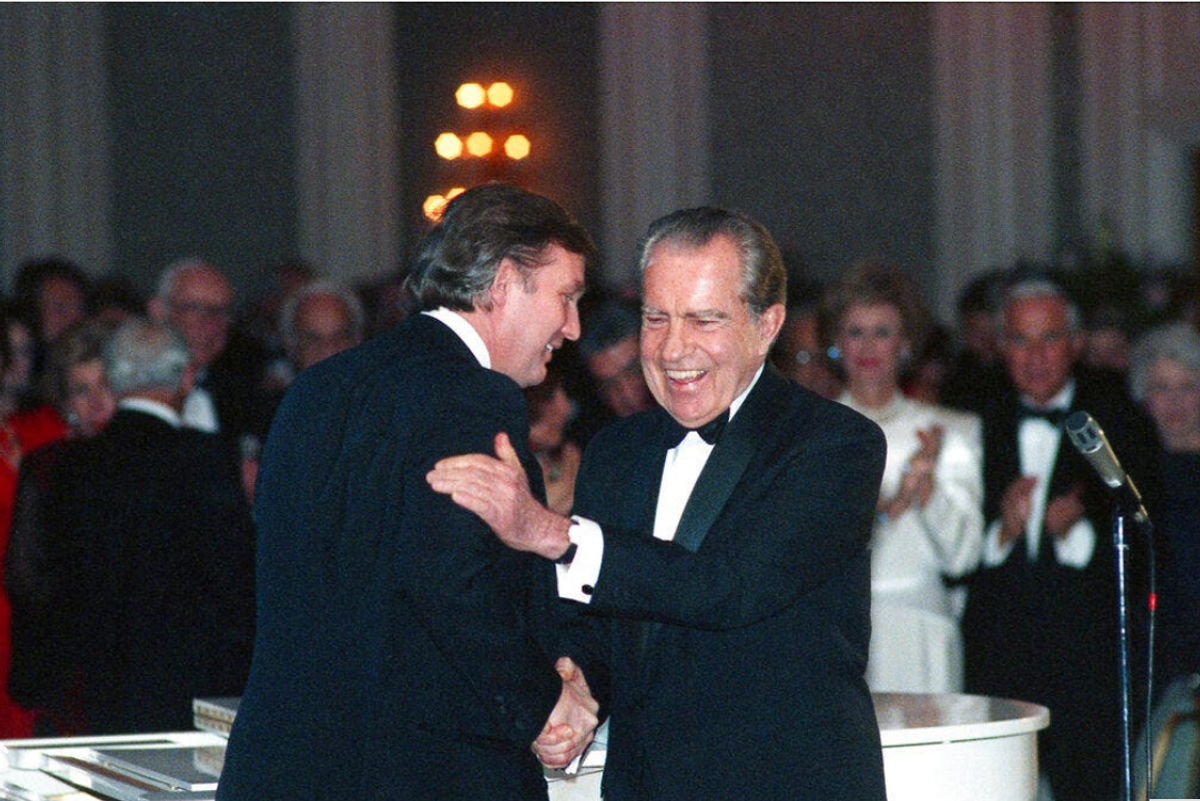
So this driver is stopped at an intersection. A pedestrian is dawdling in the crosswalk. Driver leans out the window and yells, “Get out of the street, you damned liberal!”
It’s been years since I read that in a magazine. I can’t remember if it was a true story, though I think it was. But even if only apocryphal, the picture it paints of American acrimony in the post-millennial years is true beyond mere facts.
As such, it leaves me questioning the likely impact of two recent well-intentioned pleas for ideological outreach. Joan Blades, co-founder of the liberal activist group Moveon.org, wrote an essay for The Christian Science Monitor, asking progressives to stretch beyond their left-wing comfort zones and “love thy neighbor.” And New York Times columnist Nicholas Kristof warned the left against a tendency to “otherize” Donald Trump voters.
I’ve got no real argument with Kristof or Blades. It’s a noble gesture they’re making. It occurs to me, though, that none of this addresses a question that has come to seem obvious: What if the problem is simply that we just don’t like each other?
As I’ve said often, our acrimony is not political. It’s not about tax rates, government regulation, or even abortion rights. No, this is elemental.
This is about the city versus the country, higher education versus a mistrust thereof, Christian fundamentalism versus secular humanism. And it is about social change versus status quo.
Consider for a moment how often in history that change has been forcefully imposed on conservatives. It has been done by statute, by court decision, by executive order and, once, by war.
This is not an apology for that. In every instance, force was necessitated by the intransigence of those who defended that status quo because they were not ready for change.
If change must wait until all parties are “ready” for it, then change will never come.
So no, the foregoing is just an observation: Resentment is the residue of forced change. And this particular resentment is old, deep, and festering. Worse, it is useful. Republicans have found the maintenance and exploitation of that resentment to be a political gold mine. For instance, it helped elect Donald Trump.
But resentment is not identity. Or at least, it never was before. These days, people seem to wear their resentments — and more to the point, the ideological labels that give them voice — the way they wear gender or ethnicity, i.e., as an immutable marker of self. Suddenly, “conservative” is not about what you believe, but what you are. Small wonder the feud between ideologies comes to seem as mindless — and about as amenable to amicable resolution — as the one between the Hatfields and the McCoys.
Then you see a George W. Bush cozy up to his friend Michelle Obama and it stirs some vague, vestigial hope, some reminder that none of this is destiny, some realization that we must resolve this hate — it is not too strong a word — if we want to continue as one nation, indivisible. You see them buddied up across their vast ideological divide and you wonder why we can’t all be like that.
Still, with due respect to Kristof and Blades, I don’t know that progressive outreach alone can get us there. I find it noteworthy that I’ve seen no prominent conservative columnist or activist issue a similar call to the political right. Maybe I missed it. If so, I look forward to the correction. It would be a hopeful thing.
Because it’s a fallacy to believe progressives can fix America’s acrimony by changing their attitudes. I am all for reaching out.
But it helps to have someone else reaching back.
IMAGE: U.S. President Donald Trump speaks during his “Make America Great Again” rally at Orlando Melbourne International Airport in Melbourne, Florida, U.S. February 18, 2017. REUTERS/Kevin Lamarque


